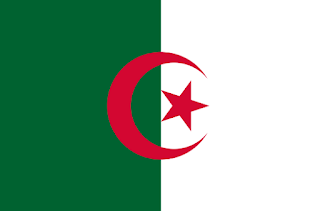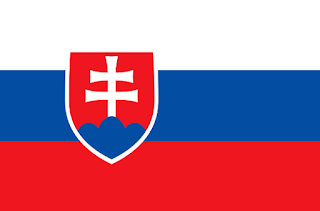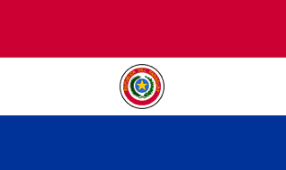FACTS ABOUT PORTUGAL
AMAZING
FACTS ABOUT PORTUGAL
1.
The official name of Portugal is the “Portuguese
Republic”.
2.
Lisbon is the capital city of Portugal.
3.
The total population of Portugal is 10,833,816.
4.
The natives of Portugal are called
Portuguese.
5.
The Euro (EUR) is the official currency
of Portugal.
6.
Portugal only shares a border with
Spain.
7.
Portugal was founded in 1128, making it
one of the oldest nations in Europe. Portugal is named after its 2nd largest
city, Porto.
8.
Portugal is a developed country. It
ranks as the 17th safest country in the world.
9.
The Green lane toll pay system and
pre-paid mobile phone card are also Portuguese inventions, to name a couple.
10.
Portuguese, the national language of
Portugal is also spoken in Brazil, Mozambique, Angola, Guinea-Bissau, East
Timor, Equatorial Guinea, Cape Verde, and São Tomé and Príncipe – a total of
nine countries.
11.
It (Portuguese) is also the 6th most
spoken language (240 million speakers) in the world, followed by Bengali and
Russian.
12.
Portuguese people were a key factor to
the Age of Exploration. They helped discover several lands unknown to the
Europeans in the Americas, Africa, Asia, and Oceania.
13.
The largest community of Portuguese
outside Portugal is in Paris.
14.
The Dolphin Interaction Programme (the
only one of its kind in Europe) gets you up close and personal with the
dolphins. Here, you get a chance to interact directly with dolphins.
15.
There are 15 UNESCO World Heritage Sites
in Portugal (ranking it 8th in Europe and 17th in the world)… and each year
more than 13 million tourists visit the country.
16.
The largest artificial underwater
park–The Ocean Revival Underwater Park—in the world is in Portugal.
17.
The VASCO DA GAMA BRIDGE in Lisbon is
the longest bridge in Europe with a total length of 17,185 meters.
18.
One of the most advanced ATM system in
the world belongs to Portugal. More than 60 operations are possible through the
system including a donation for charities, phone credit top-ups and buying
concert tickets.
19.
The University of Coimbra, established
in Lisbon in 1290, is one of the oldest universities in continuous operation in
the world, the oldest university of Portugal, and one of its largest higher
education and research institutions.
20.
The montado landscape of Portugal
produces approximately half of all cork harvested annually worldwide. Cork is
impermeable, buoyant, elastic, and has fire retardant properties. It is most
commonly used as a wine stopper.
21.
The world record for the largest Santa
Claus parade is held by Porto, Portugal with 14,963 attendees.
22.
Portugal is also known as the “country
of tiles.” The Portuguese have been decorating their walls and floors with
tiles for a long time. To learn more about the history and artistic evolution
of the Portuguese tiles, from early times to modern-day, you could also visit
the National Tile Museum in Lisbon.
23.
Portugal is the world leader in the
production of renewable energy. It manages to meet almost 70% of its energy
needs through hydro, wind and solar power. The country is also able to convert
the movement of ocean waves into electricity and energy. (They really have a
safe future considering the shortage of energy the world is facing)
24.
The country’s national drink is Port
(wine), which is also its most famous export.
25.
Women in Portugal live longer than men
in the country as the life expectancy of women is almost six years more than
that of men.
26.
Portugal has the EU’s lowest fertility
rate with 82,367 babies born in the country in 2014. France tops the list of
the most babies born in the EU with the tally reaching 819,300 in 2014.
27.
The Island of Madeira, often called “the
floating garden of the Atlantic,” is in Portugal.
28.
Chili, pepper, potatoes and tomatoes
were introduced by the Portuguese to India. Piri-piri sauce was also invented
by the Portuguese.
29.
The world record for the largest omelet
belongs to Portugal. It weighed a whopping 6.466 tons. You can find more
details about the Omelet on this Guinness World Records site.
30.
Portuguese appreciate art, music, drama
and dance.
31.
The majority of the towns in the country
have at least one cinema.
32.
Fado is Portugal’s national music (it is
characterized by mournful tunes and lyrics, often about the sea or the life of
the poor).
33.
The Portuguese are fatalists. They have
deep faith in their destinies, which they believe cannot be escaped.
34.
Cafe culture is also an important
cultural feature of the Portuguese.
35.
Portugal is best known for its
distinctive Late-Gothic Manueline architecture.
36.
“Ar de Rock” by Rui Veloso, which was
released in 1980, was the first popular Portuguese rock song.
37.
After the Carnation Revolution in 1974,
Portugal regained its freedom of speech.
38.
More than 275,000 residents died in 1755
in an earthquake considered to be one of the biggest earthquakes that occurred
in Lisbon. The earthquake was followed by a tsunami and devastating fires
across the capital city.
39.
The average age of first-time mothers in
Portugal is 29.2 years.
40.
Portugal had the biggest wave ever
surfed. In 2011, Hawaiian Garret McNamara set a world record by surfing a wave
that was 90 feet high.
41.
On May 31, 2010, same-sex marriage was
legalized in Portugal. Thus, it became the sixth country in Europe to do so.
42.
The Anglo-Portuguese Alliance is the
oldest alliance in the world that is still in force… Yeah, that’s true!
43.
Os Lusíadas (by Luís de Camões) is the
national epic of Portugal.
44.
Christmas can be sunny and even warm in
Portugal, as it receives more than 300 days of sunshine annually!
45.
In 1761, Portugal became the first
colonial power to abolish slavery, doing so almost 50 years before Britain,
France, Spain or the United States.
46.
Bertrand bookshop, located in Lisbon,
Portugal, is the oldest operating bookshop. It has been in operation since
1732. The Portuguese also discovered Brazil.
47.
Christiano Ronaldo (world famous
footballer) was born in Santo António, Portugal in 1985. No doubt, football is
the most popular sport in the country.
48.
Vasco da Gama, a Portuguese explorer,
was the first European to reach India by sea.
49.
The oldest director in the world–Manoel
de Oliveira–who continued to make films until his death on April 2, 2015, was
also Portuguese. He was 106 years old at the time of his death.
50.
There are a total of four Nobel Prize
winners from the country.
51.
Some Pioneering Portuguese explorers
include: Henry the Navigator, Vasco da Gama and Álvares Cabral. The work of
these explorers helped the country become a political, economic and military
power (during the 15th and 16th centuries).
52.
Gil Vicent–considered the first
Portuguese playwright–is also called the father of Portuguese theater.
53.
Maria João Pires is a notable pianist
from the country.
54.
Portugal Exports: agricultural products,
foodstuffs, wine, oil products, chemical products, plastics and rubber, hides,
leather, wood and cork, wood pulp and paper, textile materials, clothing,
footwear, machinery and tools, and base metals.
55.
Portugal Imports: agricultural products,
chemical products, vehicles and other transport material, optical and precision
instruments, computer accessories and parts, semiconductors and related
devices, oil products, base metals, food products, and textile materials.
56.
The internet country code for Portugal
is .pt.




Comments
Post a Comment